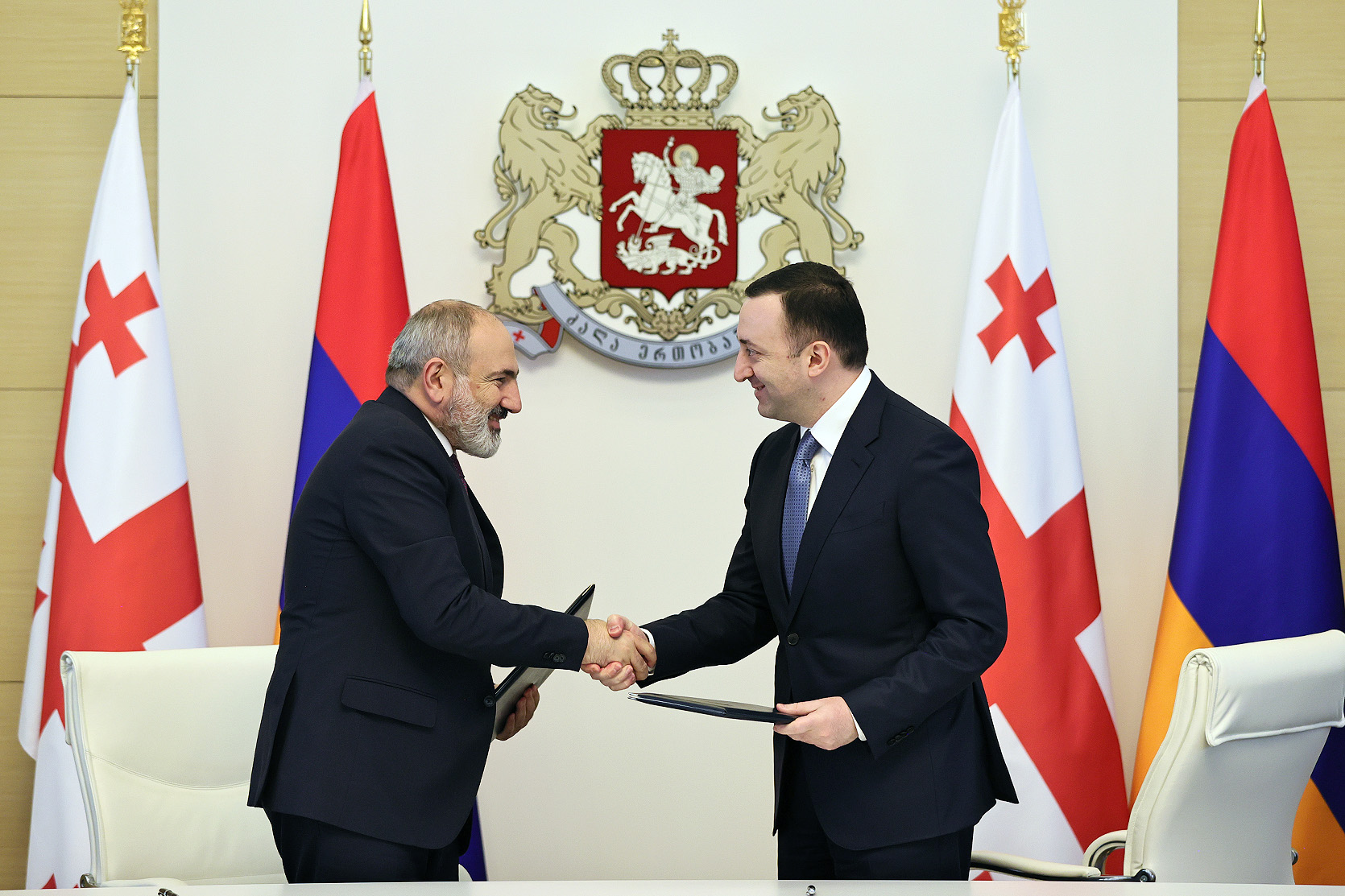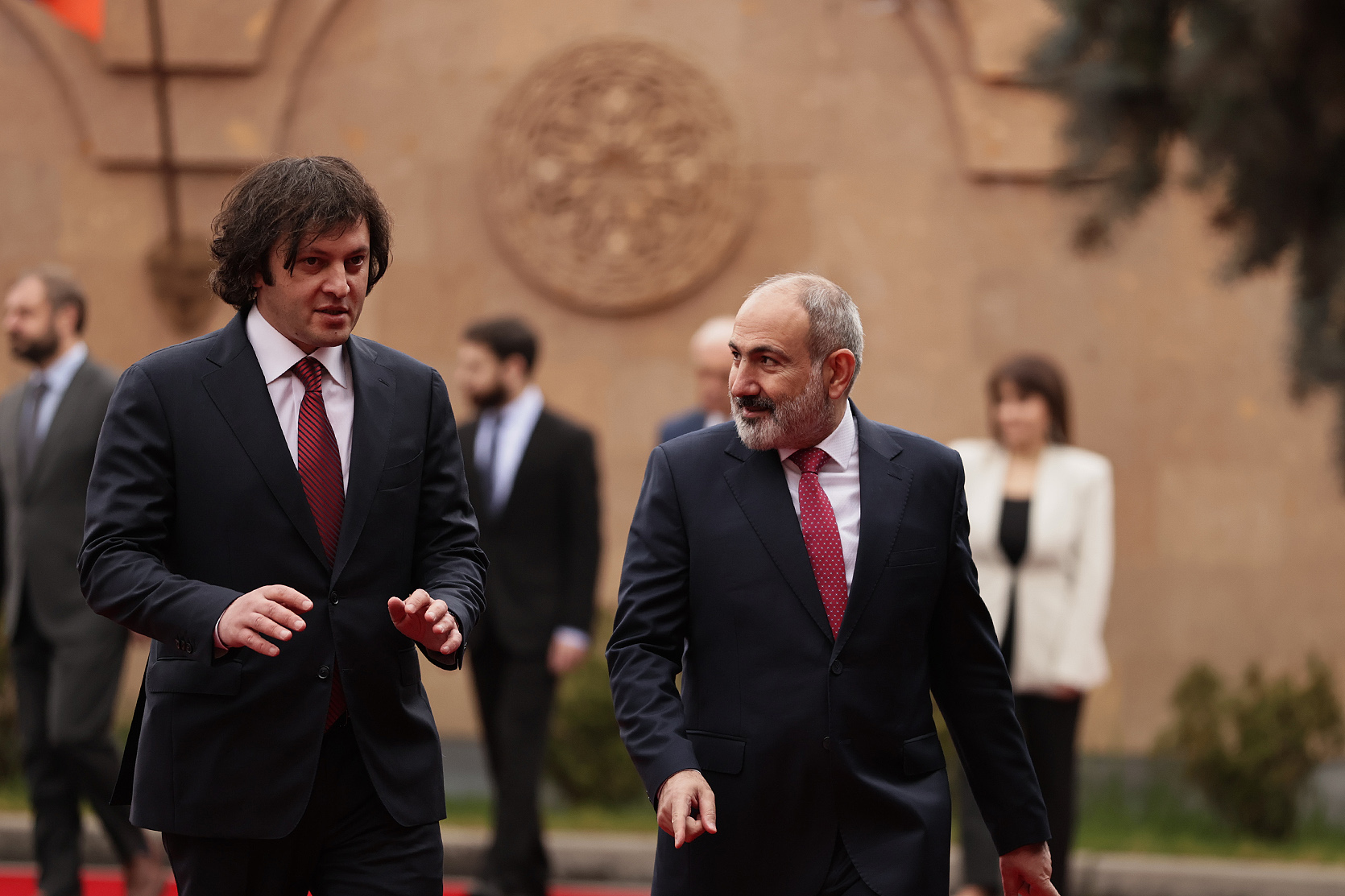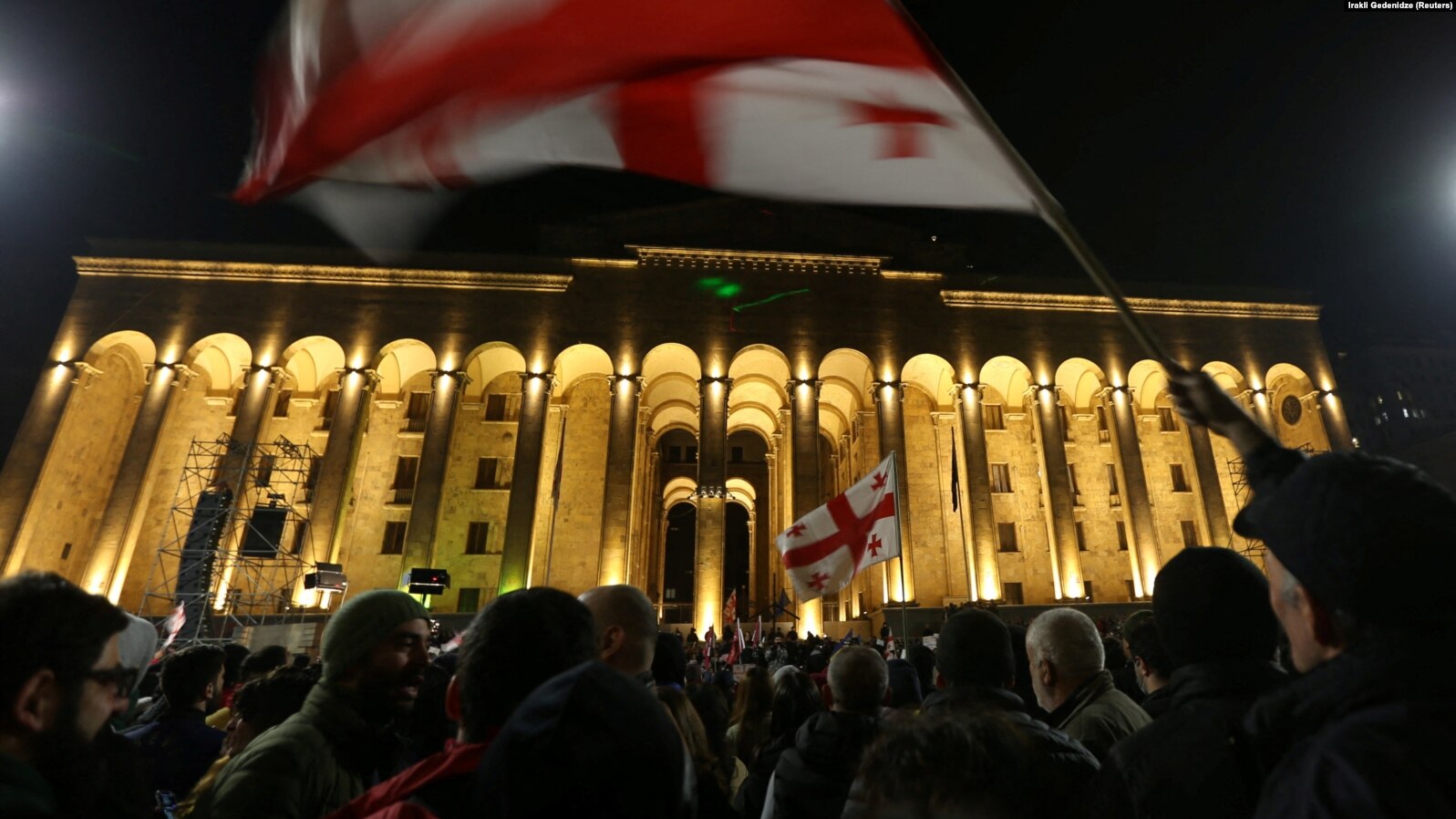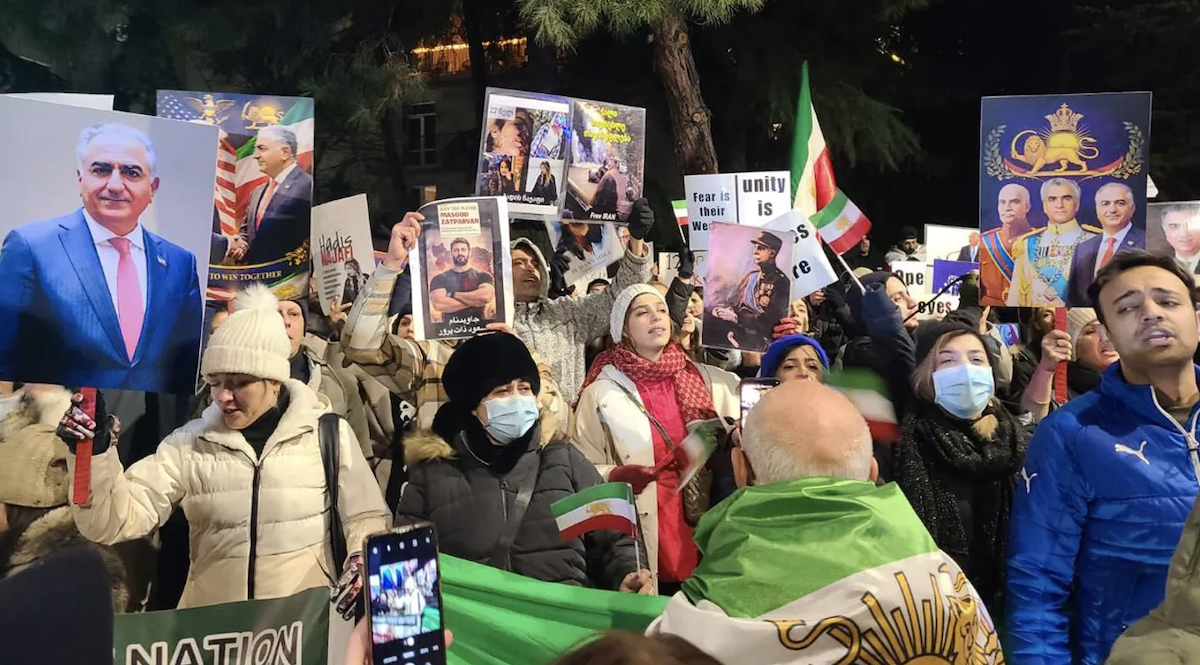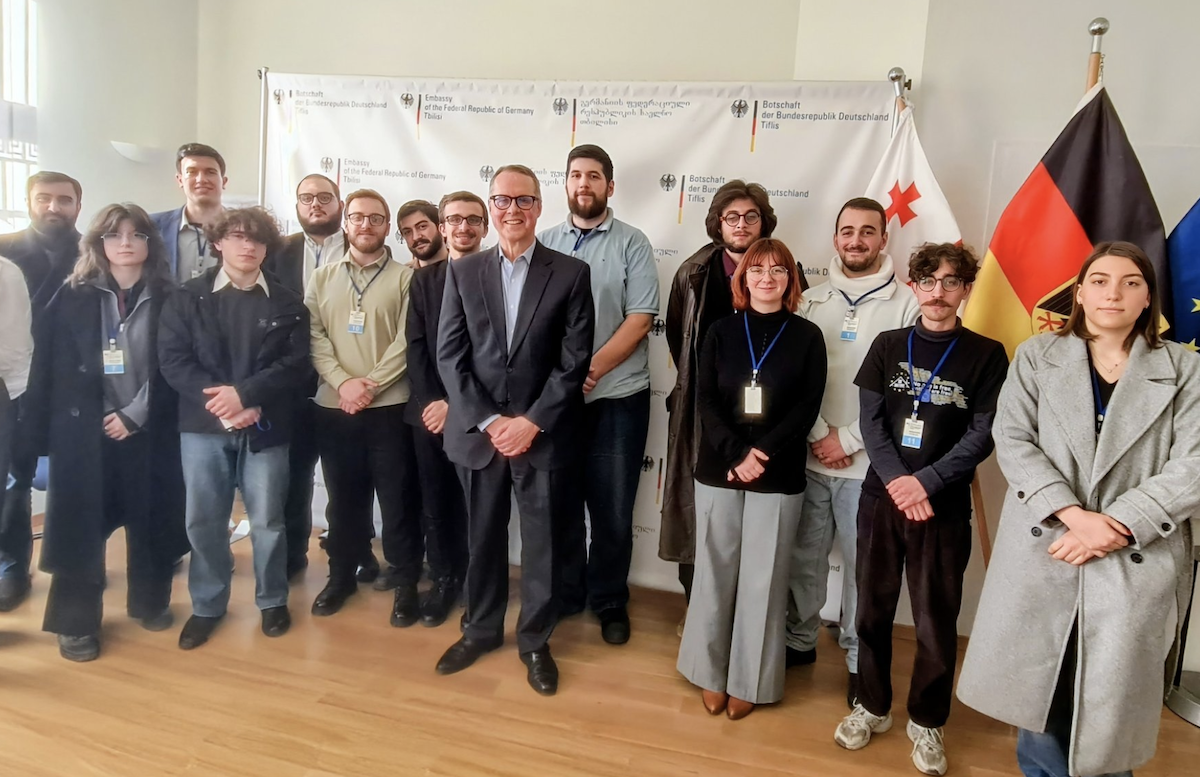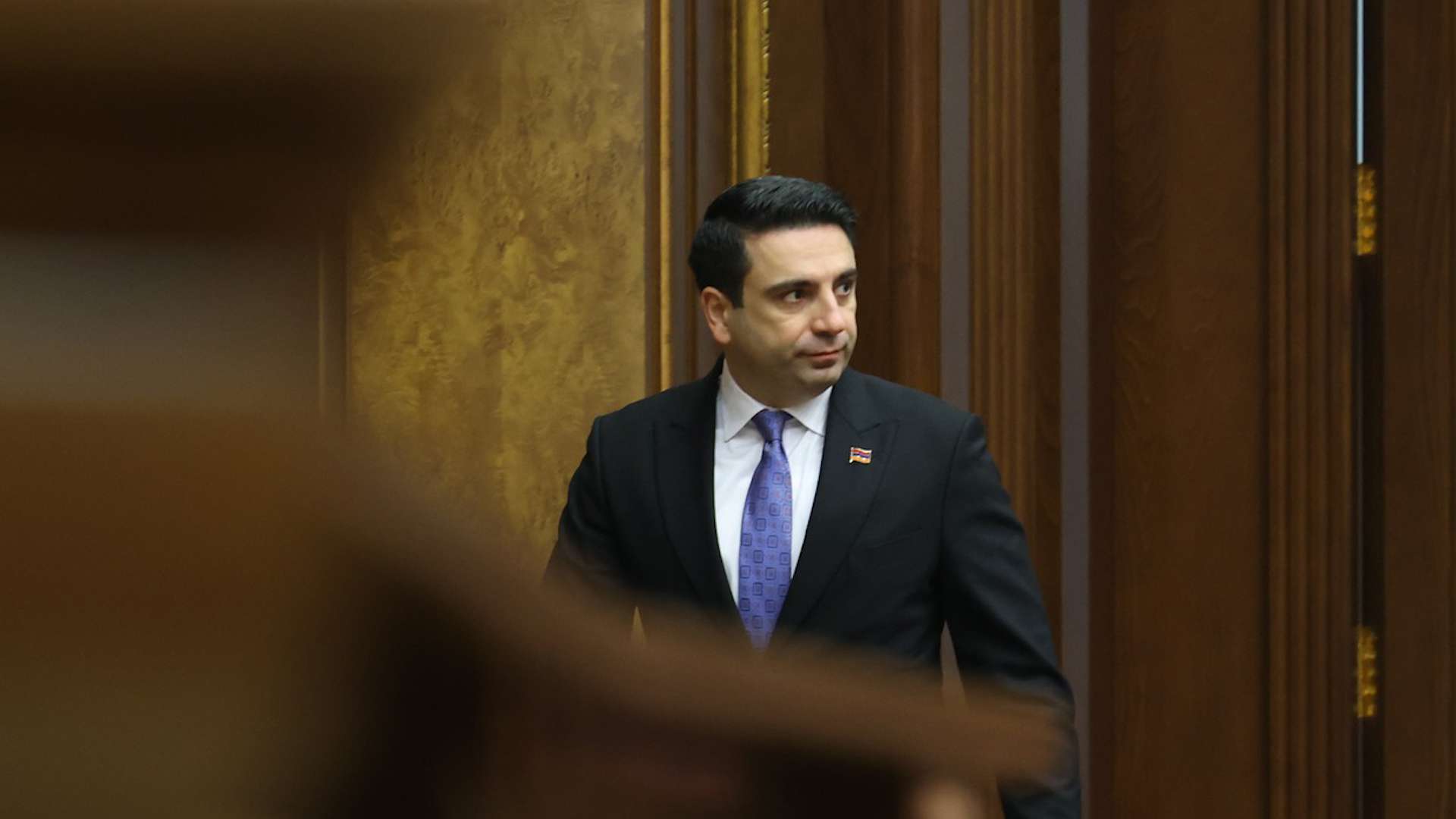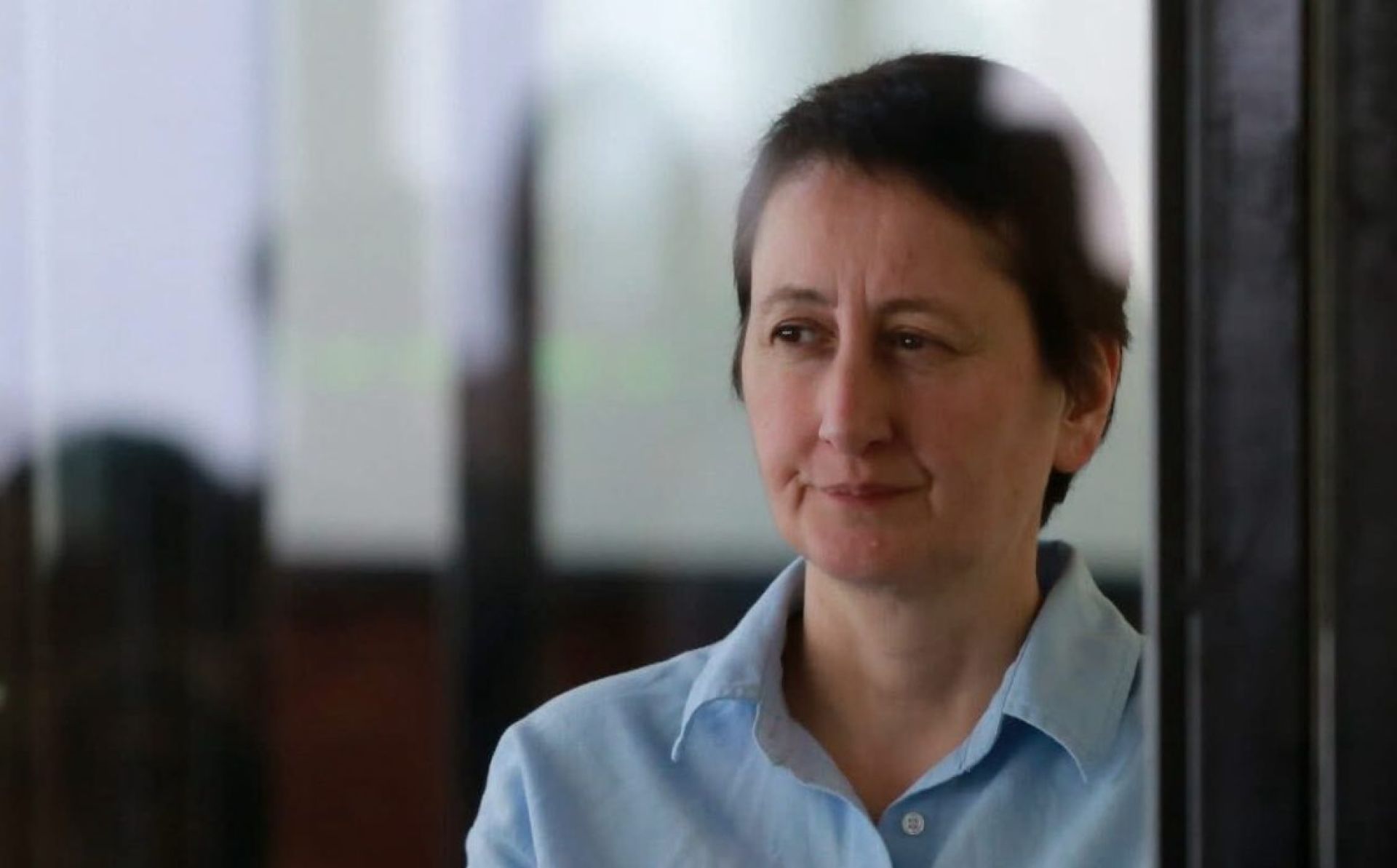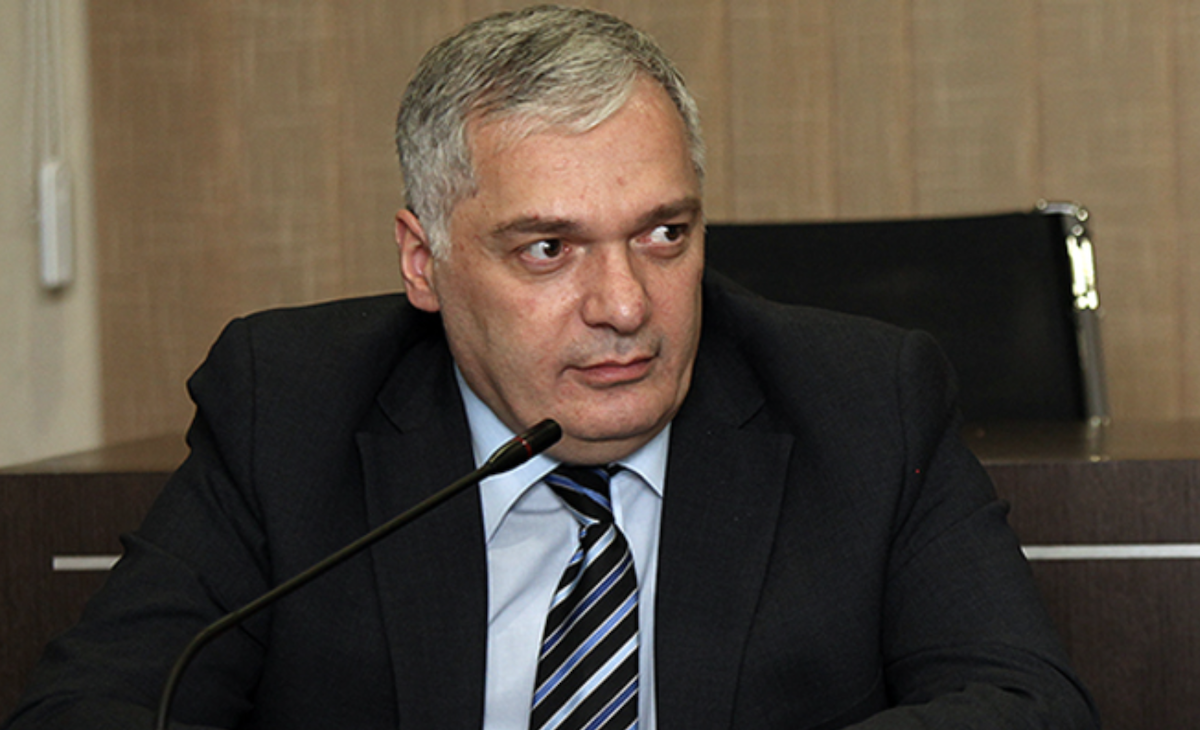Georgia holds significant military and political importance for Armenia." Opinion from Yerevan
Mirzoyan-Darchiashvili talks in Tbilisi
Armenian foreign minister Ararat Mirzoyan paid an official visit to Tbilisi, marking his first trip to Georgia following the signing of the strategic partnership declaration between the two countries.
According to the Armenian Foreign Ministry, Mirzoyan had a one-on-one meeting with his Georgian counterpart Ilia Darchiashvili, followed by expanded talks. They discussed the details of their strategic partnership, bilateral and multilateral cooperation, and regional developments.
In their statements after the talks, Mirzoyan and Darchiashvili emphasized the importance of economic cooperation.
However, Georgia’s significance for Armenia extends beyond economic development. It also holds important military and political value, according to political analyst Hakob Badalyan.
He particularly noted the anticipated arms deliveries from France to Armenia, which will pass through Georgia. Badalyan believes this issue was likely discussed in Tbilisi, although it wasn’t mentioned in official reports.
“The stable development of Armenian-French relations inevitably depends on Armenian-Georgian relations. This is not only a military-technical issue but also a political one. Considering that Azerbaijan will work to create obstacles for cargo transit through Georgia, Yerevan should step up its diplomatic efforts to neutralize these challenges,” the expert stated.
- “The ‘Russification’ of Georgia will complicate Armenia’s departure from Russia.” Opinions from Yerevan
- Armenian NGOs support Georgian colleagues in the fight against the “foreign agents law”
- “Armenia cannot count on integration with the West without Georgia”. Opinion
Progress in bilateral relations
This year, relations between Yerevan and Tbilisi have developed “rapidly,” as noted by the Armenian foreign minister. The political dialogue has been active and conducted at the highest level. According to Mirzoyan, new elements have emerged in their bilateral relations, and cooperation in all areas has been effective:
“There has been significant progress in mutual trade. By expanding cooperation in the customs sector, we will undoubtedly achieve much greater and more significant results.”
Mirzoyan emphasized that both countries recognize and respect each other’s territorial integrity and sovereignty and have a “clear mutual understanding regarding the delimitation and demarcation of the Armenian-Georgian border.”
He also addressed Georgia’s EU integration issue, stating that the news of Georgia being granted EU candidate status was met with enthusiasm in Armenia. The minister announced that Armenia is also opening “new horizons” with the EU and has developed a new partnership agenda.
Ilia Darchiashvili echoed these sentiments, stating that with the signing of the strategic partnership declaration, Armenian-Georgian cooperation has reached a qualitatively new level:
“Today, I once again thanked my colleague for the historical support of the UN resolution affirming the right of all forcibly displaced persons and refugees to return to Abkhazia and Tskhinvali.”
According to Darchiashvili, they discussed the prospects of expanding cooperation in various areas, particularly in trade, economy, transport, and tourism.
“Armenia is among Georgia’s top ten trading partners and ranks in the top three in terms of tourism,” he noted.
Mirzoyan-Darchiashvili talks in Tbilisi
Progress in bilateral relations
This year, relations between Yerevan and Tbilisi have developed “rapidly,” according to the Armenian foreign minister. The political dialogue has been active and conducted at the highest level. According to Mirzoyan, new elements have emerged in their bilateral relations, and cooperation in all areas has been effective:
“There has been significant progress in mutual trade. By expanding cooperation in the customs sector, we will undoubtedly achieve much greater and more significant results.”
Mirzoyan emphasized that both countries recognize and respect each other’s territorial integrity and sovereignty and have a “clear mutual understanding regarding the delimitation and demarcation of the Armenian-Georgian border.”
He also addressed Georgia’s EU integration issue, stating that the news of Georgia being granted EU candidate status was met with enthusiasm in Armenia. The minister announced that Armenia is also opening “new horizons” with the EU and has developed a new partnership agenda.
Ilia Darchiashvili echoed these sentiments, stating that with the signing of the strategic partnership declaration, Armenian-Georgian cooperation has reached a qualitatively new level:
“Today, I once again thanked my colleague for the historical support of the UN resolution affirming the right of all forcibly displaced persons and refugees to return to Abkhazia and Tskhinvali.“
According to Darchiashvili, they discussed the prospects of expanding cooperation in various areas, particularly in trade, economy, transport, and tourism.
“Armenia is among Georgia’s top ten trading partners and ranks in the top three in terms of tourism,” he said.
On the settlement of Armenian-Azerbaijani relations
“We welcome the historic decision to begin the process of delimiting the state border, achieved by Armenia and Azerbaijan through peaceful means. I hope the process of working on a peace agreement between Armenia and Azerbaijan will maintain its positive momentum,” stated the Georgian foreign minister.
Ilia Darchiashvili emphasized that Tbilisi is ready to continue facilitating constructive dialogue and ensuring stability and peace in the region.
The Armenian foreign minister reiterated that “a month of intensive work” is sufficient to finalize the text of the peace agreement with Azerbaijan and sign it.
He stressed that Yerevan is constructive, openly and transparently presenting this proposal, but has not received a positive response from Baku:
“On the contrary, we sometimes see new, artificial obstacles being created to delay the process. But we continue to believe that there is indeed a historic opportunity to establish lasting peace in our region.”
Ararat Mirzoyan also spoke about the importance of continuing the border delimitation process. He addressed the unblocking of regional communications, recalling the Armenian government’s “Crossroads of Peace” initiative:
“We believe that this concept and the unblocking can be economically beneficial not only for Armenia and Azerbaijan but also for all countries in the region and even beyond. Moreover, we believe that this program and unblocking will become an additional factor for peace in the region. That is why we launched the ‘Crossroads of Peace’ initiative. Incidentally, an interesting fact is that the Armenian prime minister first presented this initiative in Tbilisi.”
The foreign minister also assured that Armenia is interested and is making practical efforts to normalize relations with Turkey, establish diplomatic relations, and open the border.
Mirzoyan-Darchiashvili talks in Tbilisi
Opinion of political analyst Hakob Badalyan
“Ararat Mirzoyan spoke about Baku’s destructive policies not only in Tbilisi. Georgia, however, welcomes any agreement between Armenia and Azerbaijan.
Tbilisi is naturally very sensitive to the regional situation and stability. It welcomes any agreement between Armenia and Azerbaijan, seeing it as a guarantee of regional stability. For Tbilisi, it doesn’t really matter in what proportion the concessions are made by either side to achieve these agreements.
Regarding Ararat Mirzoyan’s visit to Tbilisi, the importance of Armenia’s relations with Georgia cannot be overstated. This significance extends beyond economic aspects to military-political ones. Specifically, considering that Georgia is a key communication link in the crucial military-political matter of Armenian-French relations, it is important how stable this link remains for the development of Armenian-French cooperation.
This poses a significant challenge, given the considerable influence Turkey and Azerbaijan have on Georgia.
Undoubtedly, they will use their influence to hinder Armenia’s cooperation with France as much as possible. Their primary goal is to prevent France from gaining a strong foothold in the South Caucasus, and Georgia plays a crucial role in this strategy. Consequently, Armenia faces very important work in this direction.
The role of Georgia in Armenia’s economy is also indispensable. The route to Armenia’s main market, the road to Russia, passes through Georgia.
Bilateral relations are extremely important because both Armenia and Georgia are key beneficiaries of regional stability and security. Both countries have sensitive and painful issues and vulnerable political environments.
If Georgia and Armenia work together diplomatically, the results could be significant.
Different approaches to certain issues should not be an obstacle to this cooperation. Such differences are natural even among the closest allies. Yerevan and Tbilisi simply need to work in areas where they have common interests, which are many and very important.”










